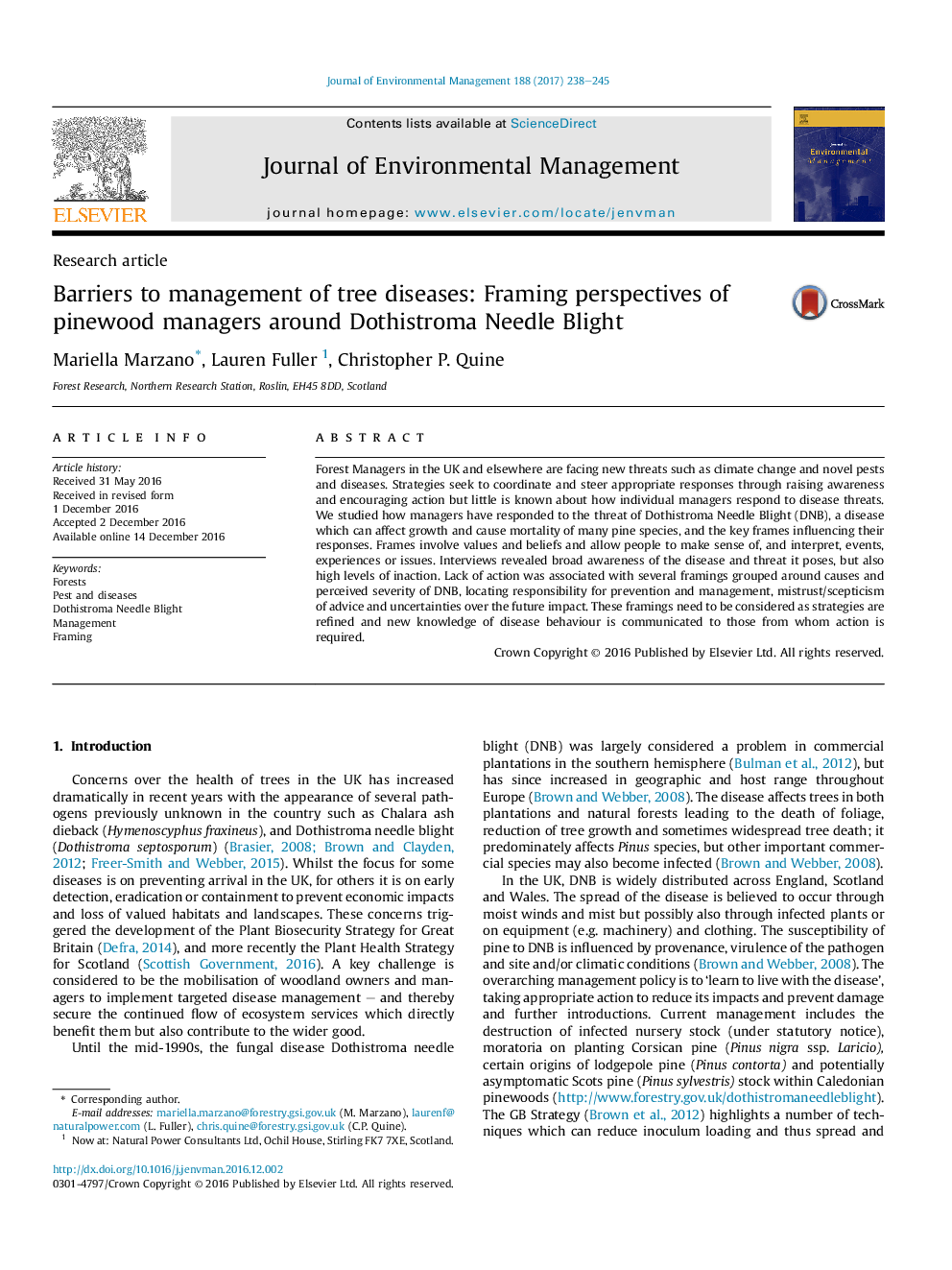| Article ID | Journal | Published Year | Pages | File Type |
|---|---|---|---|---|
| 5117141 | Journal of Environmental Management | 2017 | 8 Pages |
Abstract
Forest Managers in the UK and elsewhere are facing new threats such as climate change and novel pests and diseases. Strategies seek to coordinate and steer appropriate responses through raising awareness and encouraging action but little is known about how individual managers respond to disease threats. We studied how managers have responded to the threat of Dothistroma Needle Blight (DNB), a disease which can affect growth and cause mortality of many pine species, and the key frames influencing their responses. Frames involve values and beliefs and allow people to make sense of, and interpret, events, experiences or issues. Interviews revealed broad awareness of the disease and threat it poses, but also high levels of inaction. Lack of action was associated with several framings grouped around causes and perceived severity of DNB, locating responsibility for prevention and management, mistrust/scepticism of advice and uncertainties over the future impact. These framings need to be considered as strategies are refined and new knowledge of disease behaviour is communicated to those from whom action is required.
Keywords
Related Topics
Physical Sciences and Engineering
Energy
Renewable Energy, Sustainability and the Environment
Authors
Mariella Marzano, Lauren Fuller, Christopher P. Quine,
